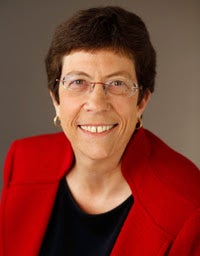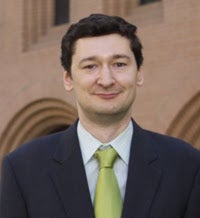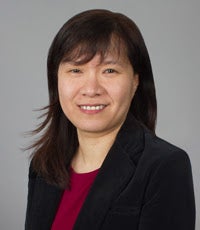One in 10 people age 65 and older has Alzheimer’s disease
Alzheimer’s disease kills more than breast cancer and prostate cancer combined — more than 93,500 people in the United States in 2014, according to the latest federal health data available. September is World Alzheimer’s Awareness Month. Expect a boost in activism on Sept. 21, World Alzheimer’s Day, when people are encouraged to speak up about the memory-erasing disease. USC experts are available to discuss developing Alzheimer’s treatments, elder abuse and the factors that increase the risk of developing the disease.
Contact: Zen Vuong, (213) 300-1381 or zvuong@usc.edu
Treat Alzheimer’s early before irreversible damage occurs
 “It has been a frustrating three decades in that, for example, we have had no new Alzheimer’s drugs in the last 14 years. But our growing understanding of the disease has enabled us to explain and learn from all our failures and to create strategies for early interventions with very promising drugs. This makes us all very optimistic that we are close to a breakthrough. We’re going to make an enormous difference in Alzheimer’s disease in the coming years.
“It has been a frustrating three decades in that, for example, we have had no new Alzheimer’s drugs in the last 14 years. But our growing understanding of the disease has enabled us to explain and learn from all our failures and to create strategies for early interventions with very promising drugs. This makes us all very optimistic that we are close to a breakthrough. We’re going to make an enormous difference in Alzheimer’s disease in the coming years.
“It’s important to intervene before irreversible damage has been done. The A4 Study and the EARLY Trial, two projects we launched at USC, were the first large-scale studies looking for Alzheimer’s disease before symptoms arise. The A4 and EARLY studies represent two major international collaborations that are bringing the best available drugs into trials that are the most likely to succeed in changing the course of the disease.”
Paul Aisen has been conducting Alzheimer’s research for over 30 years. He can discuss how an accumulation of amyloid proteins in the brain promotes the progression of Alzheimer’s disease. He is an expert in Alzheimer’s disease therapeutic research. Aisen is director of the USC Alzheimer’s Therapeutic Research Institute at the Keck School of Medicine of USC.
Contact: paisen@usc.edu or 858-964-1411
Providing a support network to prevent elder abuse
 “Those who care for people with Alzheimer’s disease are often overwhelmed by their ongoing responsibilities. Sometimes this results in actions such as yelling, hitting or other behaviors that are harmful or abusive. As health care providers, we have an important opportunity and responsibility to prevent and ameliorate mistreatment.
“Those who care for people with Alzheimer’s disease are often overwhelmed by their ongoing responsibilities. Sometimes this results in actions such as yelling, hitting or other behaviors that are harmful or abusive. As health care providers, we have an important opportunity and responsibility to prevent and ameliorate mistreatment.
“Asking caregivers as well as the person with dementia about their stresses, offering community-based services such as adult day care programs and support groups, providing counseling services, and, when actual abuse is discovered, reporting to Adult Protective Services are all strategies we can utilize in our quest to provide the very best care for people with dementia.”
Laura Mosqueda is director of the National Center on Elder Abuse, the nation’s only clearinghouse for information on neglect, abuse and exploitation of the elderly that is housed at the Keck School of Medicine of USC. Mosqueda also is chair and professor of family medicine and geriatrics at the Keck School of Medicine.
Contact: lauraamo@usc.edu or (626) 457-4076
Head injuries may increase the risk for dementia
 “Research suggests that traumatic brain injury (TBI) victims may be at higher risk for Alzheimer’s disease, but the reasons for this remain shrouded in mystery.
“Research suggests that traumatic brain injury (TBI) victims may be at higher risk for Alzheimer’s disease, but the reasons for this remain shrouded in mystery.
“The aging brain and the young brain are affected by TBI differently, and brain scans can assist us in our attempts to understand why certain TBI patients are at higher risk for Alzheimer’s disease than others. In the future, the brain scans of concussion victims may even help scientists to early identify such high-risk individuals, whether they are civilians, athletes or members of the armed forces.”
Andrei Irimia is a neuroimaging researcher who studies how concussions and other forms of traumatic brain injury may alter brain aging and even increase the risk for Alzheimer’s disease. He is an assistant professor of gerontology and neuroscience at the USC Leonard Davis School of Gerontology.
Contact: irimia@usc.edu or (213) 821-5997
Down syndrome heightens risk for Alzheimer’s disease
 “Individuals with Down syndrome have increased risk of developing Alzheimer’s disease. This connection between Down syndrome and Alzheimer’s provides an opportunity to identify common genes contributing to dementia in both populations.
“Individuals with Down syndrome have increased risk of developing Alzheimer’s disease. This connection between Down syndrome and Alzheimer’s provides an opportunity to identify common genes contributing to dementia in both populations.
“My lab is examining the interactions between proteins altered in both Down syndrome and Alzheimer’s to identify molecular targets and pathways underlying neurodegeneration and dementia. We achieve this by using a simple model organism, the fruit fly, because of its powerful genetics, short generation time, and evolutionarily conserved genes and signaling pathways. Future validation studies using mammalian models could potentially lead to treatment strategies.”
Karen Chang can discuss the connection between Down syndrome and Alzheimer’s. She is an associate professor of physiology and neuroscience at the Zilkha Neurogenetic Institute at the Keck School of Medicine of USC.
Contact: changkt@usc.edu
Blood vessel dysfunction in the brain impairs memory
 “Increased blood pressure and decreased blood flow to the brain have both been linked to the buildup of toxic plaques that could lead to Alzheimer’s disease and dementia.
“Increased blood pressure and decreased blood flow to the brain have both been linked to the buildup of toxic plaques that could lead to Alzheimer’s disease and dementia.
“We now know that brain vessels are stiff and resistant to blood flow in those at risk of dementia and that this process is also detectable during the earliest stages of Alzheimer’s disease. Brain scans aimed at detecting vessel stiffness could one day help identify people at risk for dementia. Treatments that can reverse vessel stiffening may aid efforts to prevent Alzheimer’s disease and dementia.”
Daniel Nation can discuss blood vessels in the brain and how a dysfunctional neurovascular system can contribute to dementia and Alzheimer’s. He is an assistant professor of psychology at the USC Dornsife College of Letters, Arts and Sciences.
Contact: danation@usc.edu or (213) 740-2219
###
As a research institution devoted to promoting health across the life span, USC has more than 70 researchers dedicated to the prevention, treatment and potential cure of Alzheimer’s disease. The memory-erasing illness is one of the greatest health challenges of the century, affecting 1 in 3 seniors and costing $236 billion a year in health care services. USC researchers across a range of disciplines are examining the health, societal and political effects and implications of the disease.
In the past decade, the National Institute on Aging has nearly doubled its investment in USC research. The investments include an Alzheimer Disease Research Center.



